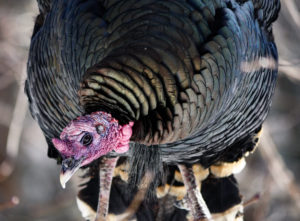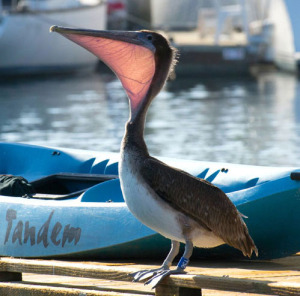Nice weekend! Here’s your Friday news digest.
As climate change ramps up, scientists are finding it’s not just temperature that impacts where a species moves. Precipitation is also important, and a species can be torn asunder with these two pressures, according to a UC Berkeley study of changes in bird ranges in Lassen Volcanic, Yosemite, and Sequoia national parks. [UC Berkeley News Center]
Does the Endangered Species Act really need pressure from citizens to work effectively? It turns out that, yes, citizen-initiated petitions are more likely to pose conflicts with development and also include species that are significantly more threatened, on average, than species in petitions initiated by federal agencies, according to a UC Berkeley and Emory University study. [Emory University]
Stanford University’s historic stone buildings have a Bay Area source. Although most Bay Area quarries produce crushed stone, there is a source of golden sandstone that was formerly quarried in the Santa Teresa Hills, south of San Jose. [KQED Quest]
Glen Ellen musician Bernie Kraus abandons career working with the titans of rock music to focus on the sounds of the natural world, which he calls “biophonies.” “I’d had no way of understanding that the natural world was filled with so much wondrous chatter,” Kraus writes in his latest book: “The Great Animal Orchestra: Finding the Origins of Music in the World’s Wild Places.” [Marin Independent Journal]
Swanton Berry Farm and Pie Ranch in Pescadero to become two of the first California farms to carry the “Food Justice” label, guaranteeing a farm’s commitment to fair living wages for workers, adequate living and working conditions, and fair contracts with buyers, among other things. [Peninsula Press]
Treasure Island may be far more contaminated with radiation than Navy officials have previously let on, according to new documents that have been released. Soil from one site during the Navy’s cleanup tested radiation levels 400 times the EPA’s human exposure limits for topsoil. [San Francisco Chronicle]
The food industry is dumping millions of dollars to defeat a November ballot initiative in California that would require the labeling of foods made with genetically modified organisms (GMOs). Seed giant Monsanto Co, and soda and snack seller PepsiCo Inc along with other opponents have slapped down $25 million already and could raise up to $50 million. [Huffington Post]



-300x221.jpg)

